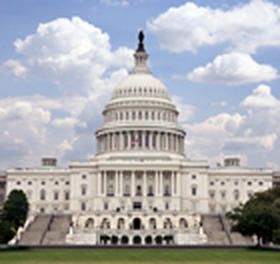
A bill reauthorizing the Older Americans Act appears destined for the president’s desk after the U.S. House of Representatives passed a version of S. 192 March 21. First, however, the legislation will move back to the Senate for approval of House amendments.
The Older Americans Act Reauthorization Act of 2015 provides funding for services to almost 11 million seniors, including information and referral assistance, in-home supports, nutrition programs, transportation, caregiver support, job training, legal services and protection from abuse and financial exploitation, according to the National Association of Area Agencies on Aging.
“Approval … puts us much closer to ensuring that OAA programs will continue to support older adults to live with dignity and independence in their homes and communities for as long as possible,” n4a CEO Sandy Markwood said in a statement. The organization represents 622 Area Agencies on Aging and 256 Title VI Native American aging programs.
The group, which expects the president to sign the legislation in April, singled out Rep. John Kline (R-MN), chairman of the House Committee on Education and the Workforce, and the committee’s ranking member, Rep. Robert Scott (D-VA), for their efforts to secure passage.
The Eldercare Workforce Alliance also commended the House for passing the reauthorization, saying that it would support the more than 40 million family caregivers who provide an estimated 37 billion hours of uncompensated care each year.
“Our nation faces a severe and growing shortage of eldercare providers with the skills and training to meet the unique health care needs of older adults,” Amy York, the EWA’s executive director, said in a statement. “EWA is committed to supporting the reauthorization of the OAA, as it invests in building and maintaining an eldercare workforce — that includes family caregivers — that supports well-coordinated, high-quality care for older adults.”
EWA, a group of 31 national organizations including LeadingAge, the Paraprofessional Healthcare Institute and AMDA – The Society for Post-Acute and Long-Term Care Medicine, noted that the OAA supports family caregiver programs that offer evidence-based interventions and expand dementia-capable home- and community-based services for those with Alzheimer’s disease; counseling, respite care, training and assistance with locating services; and information and outreach, access assistance, individual counseling, support groups and training, respite care and other supplemental services to Native American caregivers.
The reauthorization legislation, initially introduced by Sens. Lamar Alexander (R-TN), Patty Murray (D-WA), Richard Burr (R-NC) and Bernie Sanders (I-VT), passed the Senate on July 16.
The National Council on Aging, an EWA member, urged the Senate to work quickly to endorse the House changes and send the legislation to the president’s desk.
“Today’s vote shows Americans of all ages that Democrats and Republicans in Congress can work together on important senior issues to strengthen and modernize the programs they rely on,” Howard Bedlin, NCOA vice president for policy and advocacy, said in a statement. The NCOA also thanked Kline and Scott.
S. 192, the organization noted, offers new support for modernizing multipurpose senior centers, promotes chronic disease self-management and falls prevention and includes stronger elder justice and legal services provisions.
The OAA in 2015 observed the 50th year since its original passage. Funding for act has not kept pace with inflation or demand, according to the NCOA, and sequester and other recent budget cuts have eroded OAA support and increased waiting lists for services nationwide.



